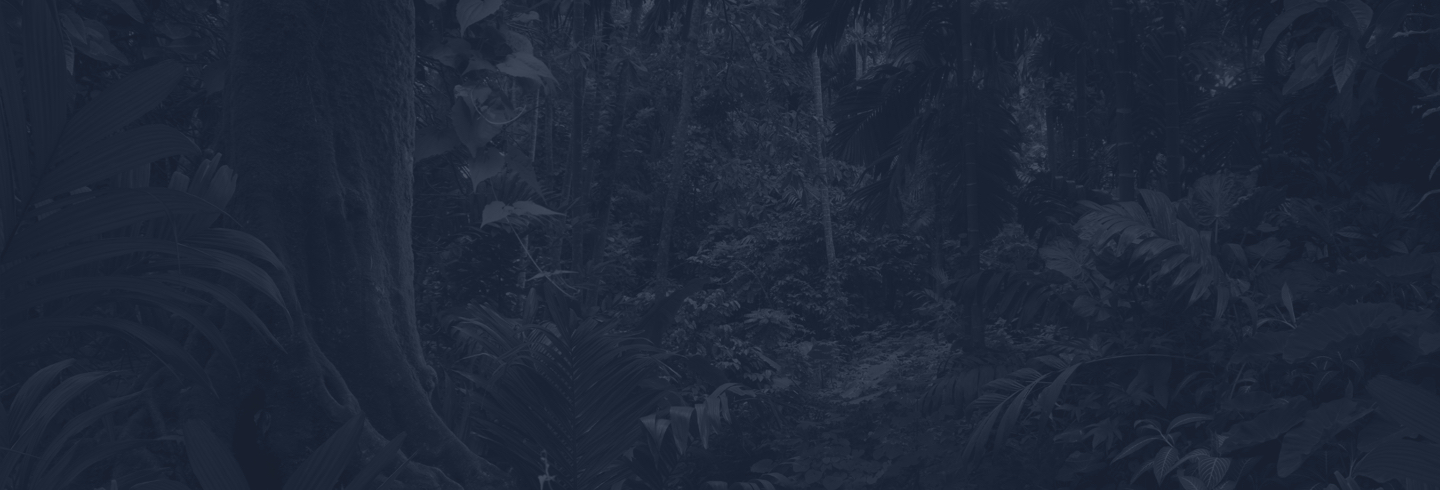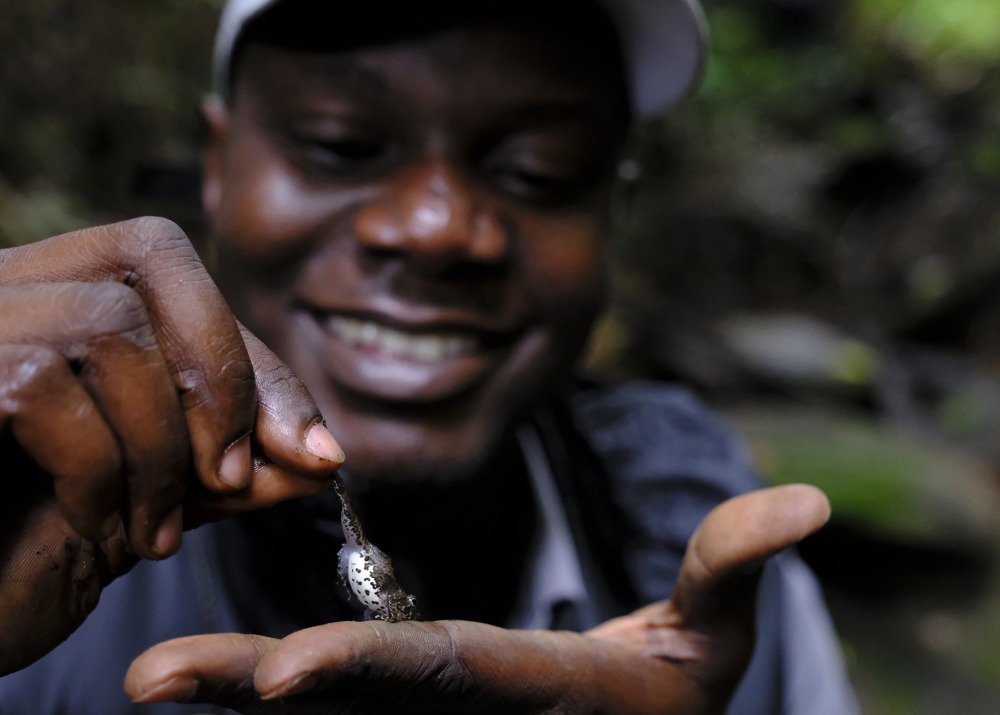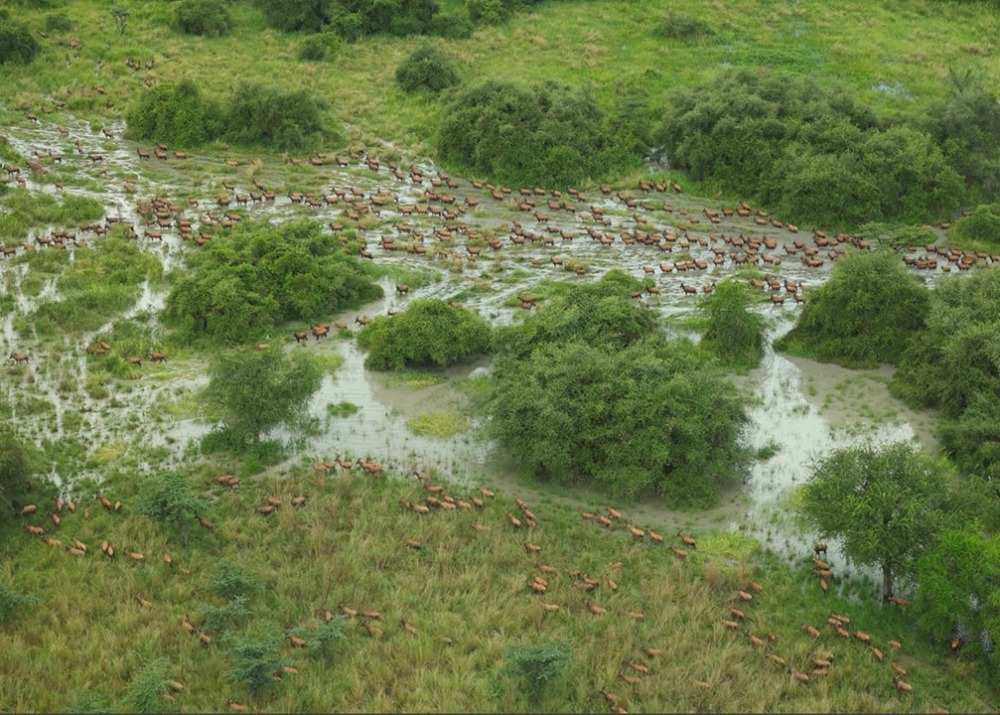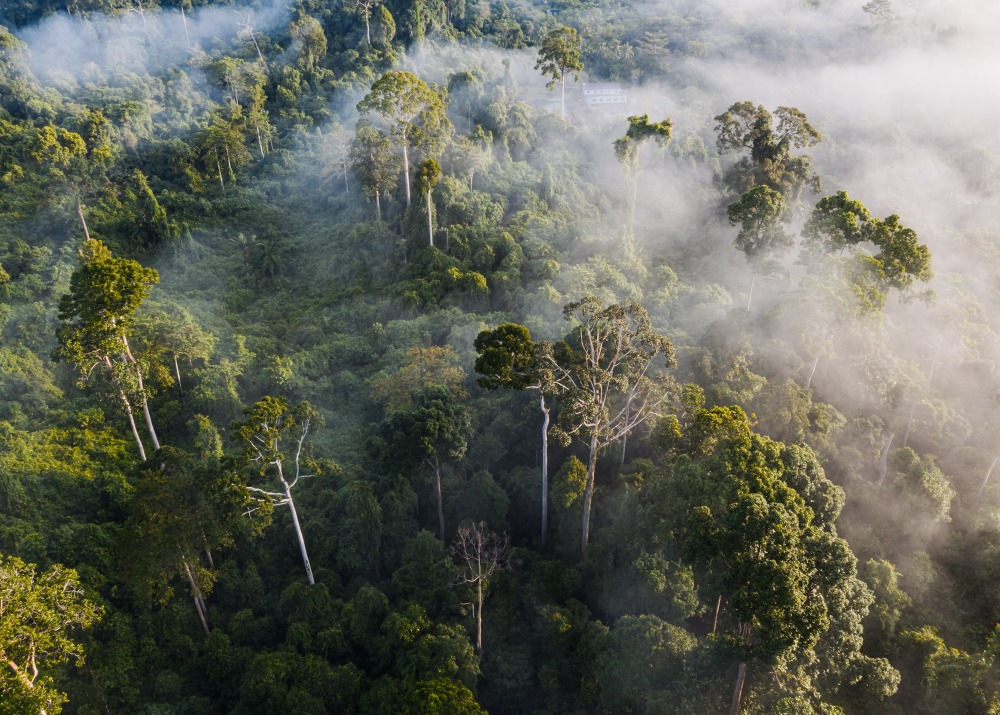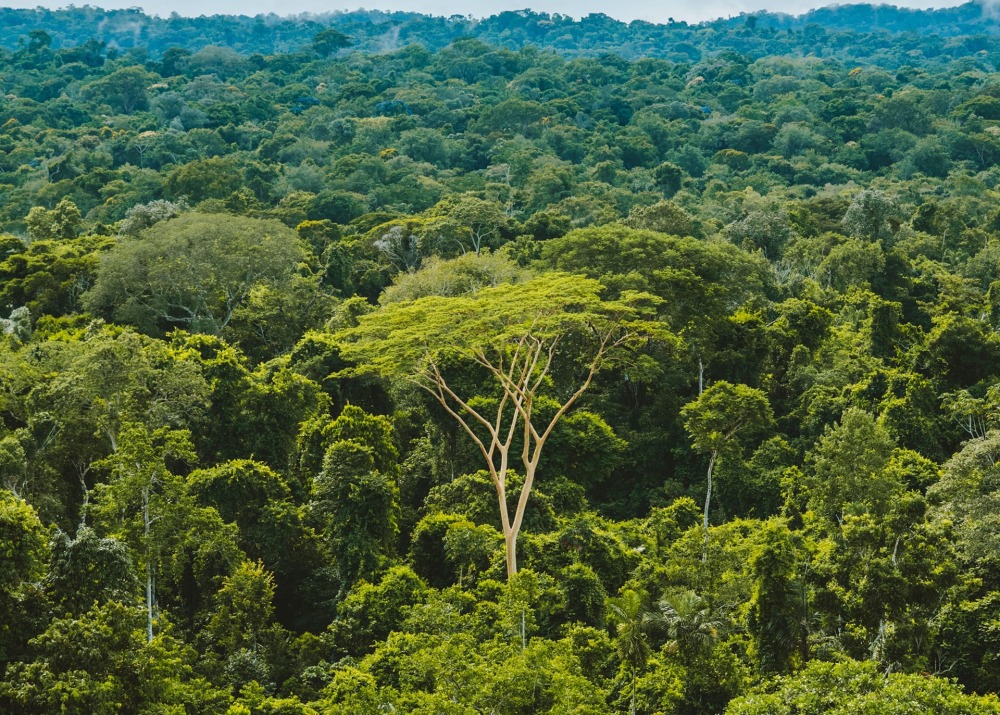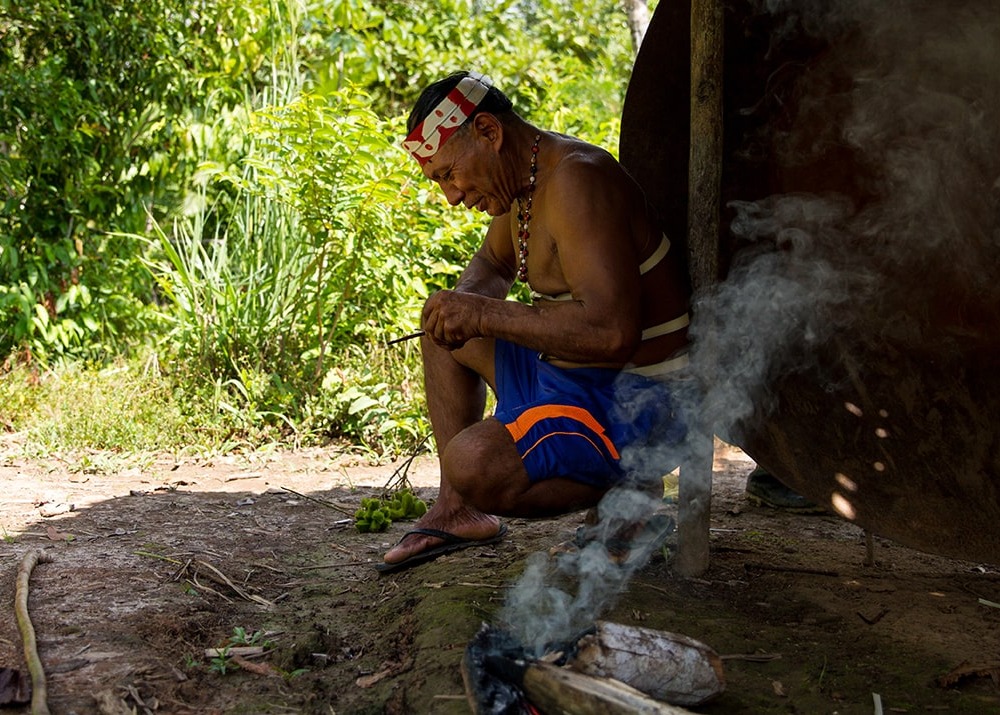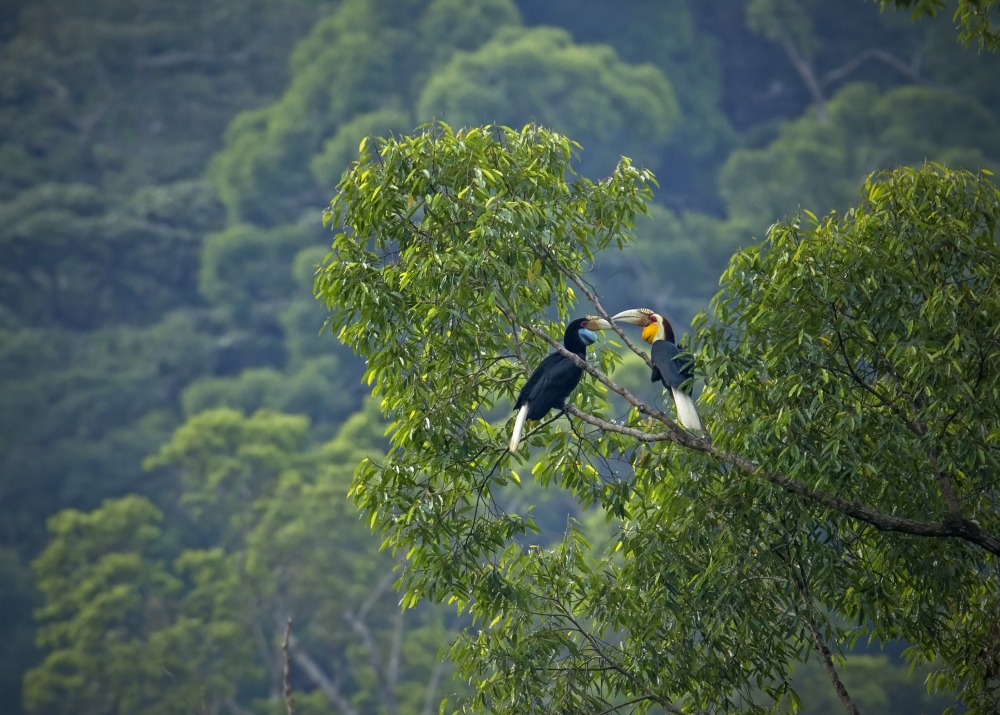Project Lifecycle: Responding to Challenges
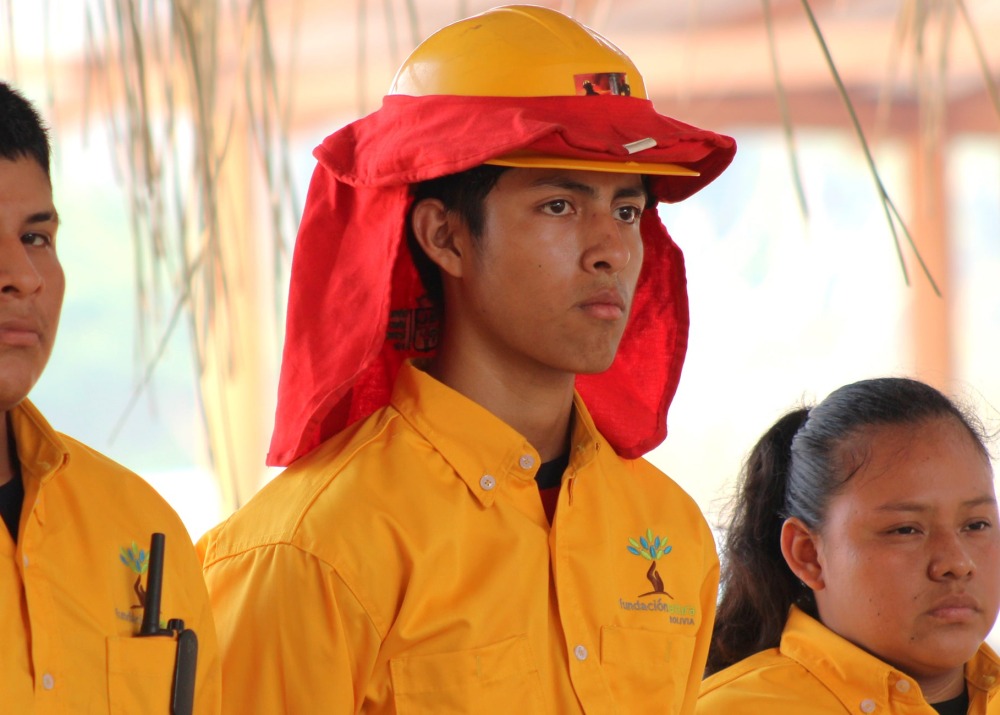
At every stage of a project, Rainforest Trust staff work closely with our partners to best plan for and achieve success for each project. But even the most careful planning cannot anticipate every possible challenge. When the unexpected threatens the success of a project, we support our partners as they respond and adapt.
Below, we take a look at some of the ways we help our partners respond to wildfires, political turmoil, and other unexpected challenges.
Responding to Natural Disasters
From droughts and fires to floods and landslides, natural disasters often move with an almost incomprehensible speed, ferocity, and reach. This was absolutely the situation in Bolivia in 2024, when record-breaking wildfires—fueled by drought and often set by humans clearing land—burned large swaths of the country’s landscape and forests.
Among the burned acreage was a portion of the 2,259,968-acre protected area we and partner Fundación Natura Bolivia helped safeguard in the Bajo Paraguá forest in 2021. To protect the forest, we provided emergency funds that Fundación Natura Bolivia used to train, organize, and equip 24 community volunteer firefighters. Our emergency support also provided the funds for food and rehydration for an additional 20 volunteer firefighters, the distribution of food, fuel, and medicine to nearby communities during and after the fires, and ongoing work to reduce the risk of future wildfires through improved monitoring and increased rapid-response capacity.
Ensuring Safety in Times of Upheaval
Political turmoil and armed conflict can impact even the most remote of conservation projects, either by directly harming the land and wildlife we seek to protect, or by creating upheaval and insecurity where our partners live and work. Sometimes, as has been the case in the Democratic Republic of Congo (DRC) this year, the impact is felt at both the project site and our partners’ headquarters.
When a rebel group took over two major cities in eastern DRC earlier this year, we provided emergency funding from our donor-supported Sustainability Action Fund to help three of our partner organizations relocate almost 150 at-risk people, including both staff members and their families. All told, millions of people have been displaced within the eastern DRC. Because many of these people are seeking safety near at least two nature reserves created with Rainforest Trust support, we also provided our partner, GRACE Gorilla, with funding to make necessary repairs to their water infrastructure, which has been put under great strain by the influx of displaced people. We also provided GRACE Gorilla with funds to purchase additional staff uniforms—which increase their safety by identifying them as conservation workers—and to cover three months worth of salaries that otherwise would have been disrupted by the conflict.
This additional support has helped secure our partners’ safety and allowed them to continue their important work despite the ongoing humanitarian crisis occurring throughout the region.
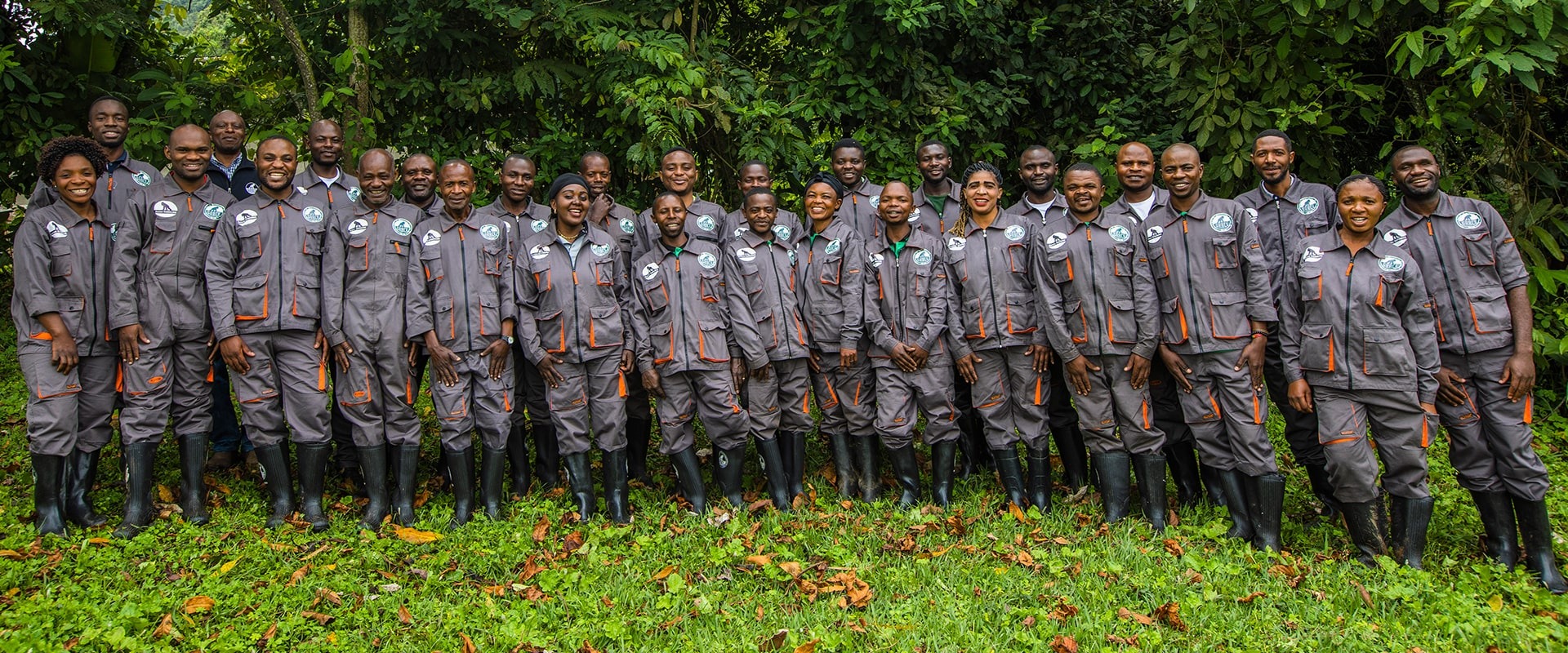
GRACE Gorilla staff in DRC © Bobby Neptune
Strengthening and Supporting our Partners
Some challenges are more mundane. The unexpected departure of a staff member might leave a partner organization understaffed or without an essential skill or role. Storm-damaged infrastructure or equipment might require repair before work can safely resume. Or unexpected complexities and challenges within the project itself might strain a partner organization beyond its existing capacity. Although these challenges are often less of a direct safety threat, they still present a significant risk to the project’s success.
Sometimes, emergency funding to repair a building or hire a consultant is the solution. Other times, Rainforest Trust staff leverage their own skills and expertise to assist the partner organization. For example, when one Peru-based partner organization was struggling to make progress with their project, a member of the Rainforest Trust conservation team travelled to their headquarters and spent five days working with them to identify and address their organizational needs, reorganize the planned activities, and properly align the project with Peru’s process for the creation of Regional Conservation Areas. Now, several years later, this partner has made substantial progress and grown such significant local support that some local community members have begun promoting the work in neighboring communities.
Rapid Response with our Sustainability Action Fund
Often, these and other unexpected challenges arise quickly and require an almost-immediate response. For these moments, we have our Sustainability Action Fund (SAF). This donor-supported fund gives us the flexibility to quickly and effectively provide financial assistance when our partners need it most. The donors who support our Sustainability Action Fund are quite literally helping put out wildfires, protecting vulnerable people from conflict and political instability, and safeguarding acres despite unexpected challenges.
Learn more about the Sustainability Action Fund
The Latest

Sign up to receive the latest updates
"*" indicates required fields

